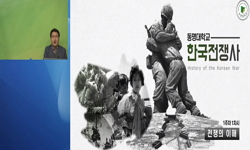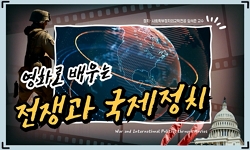Prior to modern times, China maintained a feudal state relationship with Korea. This Korea-China relationship originated from the Chinese worldview. After the Opium War, China became the subject of invasion by the imperialist powers. In this way, it h...
http://chineseinput.net/에서 pinyin(병음)방식으로 중국어를 변환할 수 있습니다.
변환된 중국어를 복사하여 사용하시면 됩니다.
- 中文 을 입력하시려면 zhongwen을 입력하시고 space를누르시면됩니다.
- 北京 을 입력하시려면 beijing을 입력하시고 space를 누르시면 됩니다.

중국이 한국의 항일운동과 분단역사를 소환하는 시각에 대한 소고 – ‘항일소설’과 ‘항미원조’영화를 중심으로 = A Study on the Way of China Summoned Korea's Anti-Japanese Movement and History of Division
한글로보기부가정보
다국어 초록 (Multilingual Abstract)
Prior to modern times, China maintained a feudal state relationship with Korea. This Korea-China relationship originated from the Chinese worldview. After the Opium War, China became the subject of invasion by the imperialist powers. In this way, it has been reduced to colonies and anti-colonies by the force of imperialist powers, and China and Korea share similar modern and contemporary experiences of the anti-Japanese movement. In the process, the two countries have a similar sense of solidarity. This sense of solidarity is summoned as a figure in literary works. After the defeat of the Japanese colonial rule, China experienced a war of ideology called the Korean War. In this war, China dispatched troops to North Korea in the name of international solidarity of the socialist country. However, in the 21st century, the history of division of the Korean Peninsula is being erased in the memory of "Anti-U.S & support North Korea." to the Korean War. This elimination is evident in the movie "Main Melody Films" based on “Anti-U.S & support North Korea”. This can be attributed to the deterioration of the U.S.-China relations and the international status of G2 that China had in the 21st century. In this paper, we attempt to learn about the perspective of Chinese literature, such as novels and movies since modern times, summoning Korea's anti-Japanese movement and division history.
국문 초록 (Abstract)
근대 이전 중국은 한국과 봉건적인 주종관계를 유지하고 있었다. 이 같은 한·중관계는 중화주의적 세계관에서 비롯된 것이었다. 중국은 아편전쟁이후 제국주의 열강에게 침탈의 대상이 된�...
근대 이전 중국은 한국과 봉건적인 주종관계를 유지하고 있었다. 이 같은 한·중관계는 중화주의적 세계관에서 비롯된 것이었다. 중국은 아편전쟁이후 제국주의 열강에게 침탈의 대상이 된다. 이처럼 제국주의 열강의 무력에 의해 반식민지로 전락하게 되고, 중국과 한국은 항일운동이라는 유사한 근대사적 경험을 공유하게 된다. 그 과정에서 두 나라는 동병상련적인 연대감을 갖게 된다. 그리고 이러한 연대감과 역사의식은 소설과 영화 등 다양한 문예작품으로 재현된다. 일제가 패망한 이후 중국은 국공내전, 한국은 한국전쟁이라는 이념의 전쟁을 경험하게 된다. 이 전쟁에 중국은 사회주의 국가의 국제적 연대라는 명분으로 한국전쟁에 참전하였다. 그러나 21세기 중국의 한국전쟁에 대한 ‘항미원조’ 기억 속에서 한반도의 분단역사는 소거되고 있다. 이러한 소거는 항미원조를 소재로 한 주선율영화에서 노골적으로 드러나고 있다. 이는 21세기 중국이 가지게 된 G2의 국제적 위상과 미중관계의 악화에서 기인한다고 볼 수 있다. 본고는 근대 이후 소설과 영화 등, 중국문예가 한국의 항일운동과 분단역사를 소환하는 시각에 대해서 고찰하고 있다.
참고문헌 (Reference)
1 管虎, "金剛川"
2 클라우스 뮐한, "현대 중국의 탄생" 너머북스 2023
3 한담, "탈혁명시대 중국 항미원조 기억 서사의 난처함― 영화 「나의 전쟁」을 둘러싼 논쟁을 중심으로" 한국중국현대문학학회 (87) : 57-85, 2018
4 홍서현, "지난 해 중국 영화 박스오피스 세계1위… 주선율 영화 가장 주목"
5 황슈지, "중국현대문학발전사" 범우사 1990
6 백지운, "중국인들의 한국전쟁, 항미원조" 창비 2023
7 김경석, "중국의 근대조선인식, 그 임계점의 문예형상화 ― 중국현대소설의 조선인형상에 대한 一考" 한국중국소설학회 (34) : 147-166, 2011
8 한담, "중국, ‘항미원조’ 아닌 평화의 가치로 한국전쟁 기억해야"
9 이기환, "중국 애국주의 영화 원조는 「상감령」"
10 이선이, "동아시아 근대 한인론의 지형" 소명출판 2012
1 管虎, "金剛川"
2 클라우스 뮐한, "현대 중국의 탄생" 너머북스 2023
3 한담, "탈혁명시대 중국 항미원조 기억 서사의 난처함― 영화 「나의 전쟁」을 둘러싼 논쟁을 중심으로" 한국중국현대문학학회 (87) : 57-85, 2018
4 홍서현, "지난 해 중국 영화 박스오피스 세계1위… 주선율 영화 가장 주목"
5 황슈지, "중국현대문학발전사" 범우사 1990
6 백지운, "중국인들의 한국전쟁, 항미원조" 창비 2023
7 김경석, "중국의 근대조선인식, 그 임계점의 문예형상화 ― 중국현대소설의 조선인형상에 대한 一考" 한국중국소설학회 (34) : 147-166, 2011
8 한담, "중국, ‘항미원조’ 아닌 평화의 가치로 한국전쟁 기억해야"
9 이기환, "중국 애국주의 영화 원조는 「상감령」"
10 이선이, "동아시아 근대 한인론의 지형" 소명출판 2012
11 최승현, "근대 중국인의 한국관 변화과정 연구" 중국인문학회 (30) : 517-534, 2005
12 陳獨秀, "陳獨秀著作選 제1권" 上海人民出版社 1993
13 陳凱歌, "長津湖之水門橋"
14 陳凱歌, "長津湖"
15 郭沫若, "郭沫若選集』(文學卷)" 人民文學出版社 1983
16 董亞春, "跨過鴨綠江"
17 蕭軍, "蕭軍五十年文集" 黑龍江人民出版社 1981
18 武兆堤, "英雄兒女"
19 舒群, "舒群集" 黑龍江大學出版社 2011
20 朴明熙, "淸末民初時期 中國朝野의 對韓國觀*―5·4時期 中國 關內의 言論을 中心으로―" 중국근현대사학회 (22) : 1-34, 2004
21 김종훈, "中 방송 ‘항미원조’ 드라마 긴급 편성…‘윤석열 연설’ 의식했나"
22 沙蒙, "上甘嶺"
23 張藝謀, "一秒鍾"
동일학술지(권/호) 다른 논문
-
- 경희대학교(국제캠퍼스) 비교문화연구소
- 신혜린
- 2023
- KCI등재
-
주사위 놀이와 우표 속 남녀 비율 및 여성 역사 위인 한일 비교
- 경희대학교(국제캠퍼스) 비교문화연구소
- 금영진
- 2023
- KCI등재
-
라틴아메리카의 강제실향민과 젠더박해: 콜롬비아의 국내실향민 사례를 중심으로
- 경희대학교(국제캠퍼스) 비교문화연구소
- 차경미
- 2023
- KCI등재
-
한국어 교재 속 유사 문법 목록 및 제시 양상 분석 연구
- 경희대학교(국제캠퍼스) 비교문화연구소
- 진정
- 2023
- KCI등재




 KCI
KCI KISS
KISS






